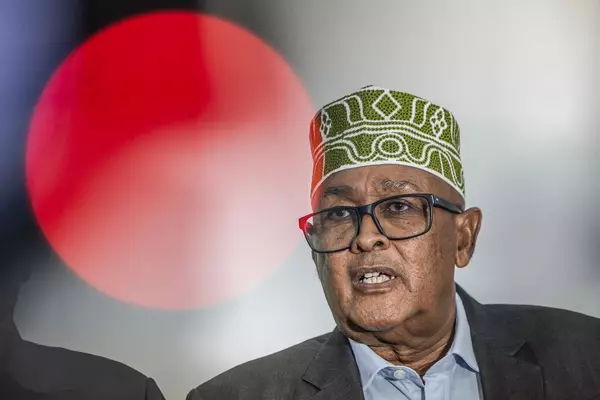Somaliland, the breakaway region of Somalia, inaugurated its new president following last month’s election, reinforcing its efforts to secure international recognition.
The inauguration took place just one day after Somalia and Ethiopia reached an agreement in Turkey to engage in “technical talks” over a dispute related to a deal between Somaliland and Ethiopia.
Abdirahman Mohamed Abdullahi, 69, a member of the opposition Waddani Party, was sworn in as the sixth president of Somaliland after winning more than 50% of the vote in the November 13 election. He defeated incumbent Muse Bihi, who was seeking a second term after seven years in office. The election saw high voter turnout and was praised for its peaceful nature, highlighting Somaliland’s democratic progress.
In his inaugural address, Abdullahi emphasized the need to renew Somaliland’s global relations. “My new government’s first job is to renew its relations with the rest of the world so that we can create a new Somaliland that will contribute to the security of the entire region, including the Red Sea,” he said.
U.S. Ambassador to Somalia Richard H. Riley extended congratulations on behalf of the U.S. government, President Joe Biden, and the international diplomatic community in Somaliland. “You have many friends in the international community,” Riley said.
Somaliland declared independence from Somalia more than 30 years ago, but it remains unrecognized by the African Union, the United Nations, and any other nation as a sovereign state. Somalia continues to claim Somaliland as part of its territory.
Despite this, Somaliland has maintained a stable political environment, contrasting sharply with Somalia’s ongoing struggles with violence, particularly from the al-Qaida-linked militant group al-Shabab. Since 1991, Somaliland has operated its own government, military, and currency.
In January, Somaliland signed a memorandum of understanding with Ethiopia to lease coastal land for a marine base. In exchange, Ethiopia would recognize Somaliland’s independence—a move that Somalia opposes, arguing it infringes on its sovereignty. This deal became a focal point during the election campaign, with Abdullahi criticizing it for lack of transparency.
Abdullahi has pledged to reassess such agreements and prioritize Somaliland’s strategic interests and quest for international recognition. His administration will also face the challenge of addressing ongoing clashes in the disputed Sool region while navigating the complex dynamics of regional diplomacy.

